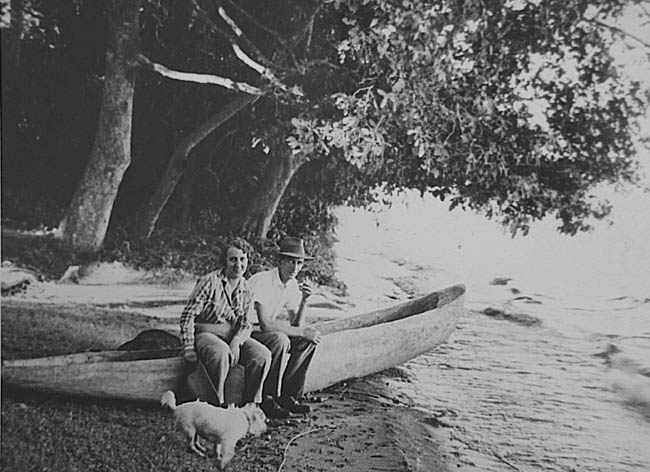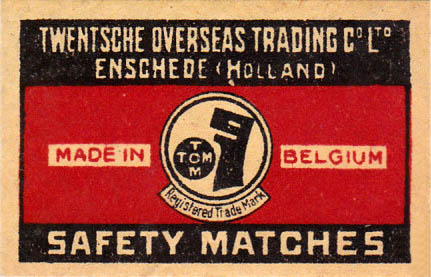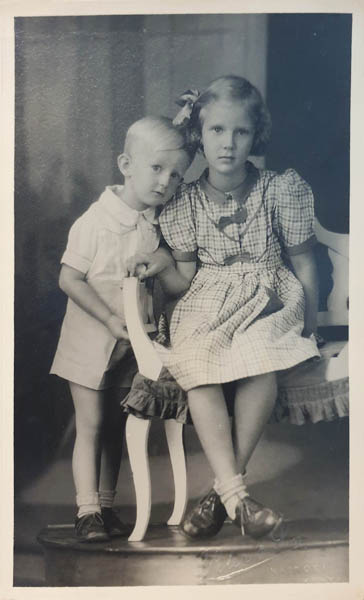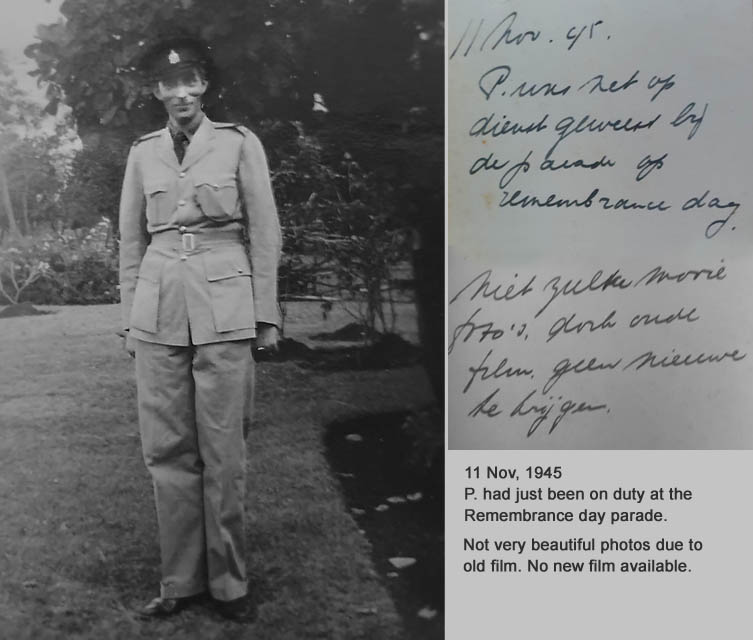
When my mother arrived by ship in Mombasa, she sent a telegram to my father's address (which was just a box number at the Post Office in Kampala - there was no mail delivery as we know it) telling him she was going to board the train to Kampala. In those days this was a three days and two nights ride, assuming no deleays - which occurred frequently. But unfortunately he was on safari (i.e. out of town) on a business trip when the telegram arrived, and not knowing when he might be returning, set out to intercept him based on information supplied by George Ismail as to his supposed whereabouts. But there were no trains or buses going further into the hinterlands, so she hired an African guide and started walking and cadging a lift where possible to make her way the Mbarara where my Dad was likely to be.
My Dad received a message by runner at Mbarara that a white woman had arrived in Kampala claiming to be his wife, and that she was on her way. Three days later they managed to connect after missing each other a couple of times by a few miles because of the slow speed of communicatons. News travelled in the bush via runners as well as drums where there was a connection between villages. But generally villages or settlements were too far apart to support reliable links by drum over larger distances, so relay runners were used to carry messages.
 |
I'm not sure which came first, the employment of my Dad by the Twentsche Overseas Trading Company Ltd, or the marriage and arrival of my mother in Uganda to join him. But whatever the case, the idea was for him to start up the Uganda branch of the Twentsche Overseas Trading Company Ltd in Kampala, with George Ismail taking care of the legal papers while my Dad set up the actual business in terms of acquiring the agency (representation) rights for overseas suppliers and negotiating as a wholesaler of Uganda goods for export. That at least was the idea.
 |
Not much is known of the actual details at this time - we know that the Uganda Branch of Twentsche Overseas Trading Company Ltd was established with a number of different products that it was the import agency for.
These included basics such as matches, razor blades, and simple cooking pots. It also took over George Ismail's garage and repair operation which would eventualy become the major part of the business
of the Kampal branch in later years.
The company had originally been established in Mombasa (Kenya) on the coast, but with the successful establishment of the Kampala (Uganda) branch, it was decided by the directors back in Holland that it was more important that a branch be established in Nairobi (the capital of Kenya). This was because Kenya was actualy a British Colony, actively being settled and developed by the British, whereas Uganda was merely a "Protectorate" where Britain assumed resposibility for protection and welfare administration of the land, but had no desire to settle it or make it a British "possession". The prospects for trade were therefore much better in Kenya, and my Dad was despatched to further develop the Nairobi branch which had been established at the same time as the Kampala branch but was having trouble getting off the ground.
So my parents moved to Nairobi, where in due course my sister Willy was born in February 1937.
|
Fiat was of course an Italian company so this part of the business effectively came to a halt for the duration of the war, but the mechanics who had been trained to service the cars in the repair garage had some skills that could be useful to the war effort. The R.A.F. had a training facility at Eastleigh (an aerodrome just outside Nairobi) where pilots from the British Commomwealth (Australia, Rhodesia, South Africa etc.) could come to train with the R.A.F. in relatively safe skies. An arrangement was worked out where my Dad's mechanics could work on simple maintenance jobs for the R.A.F. They were far from being trained aircraft mechanics, but they could do simple jobs to alleviate the load of the few trained personnel that were available. My Dad was therefore nominally in command of some R.A.F. mechanics in addition to keeping his normal job going "at the office".
During this time he also signed up as a "reserve" policeman with the Kenya Police and also served in that role for the duration of the war, mainly dealing with petty crime
as an extra hand in the C.I.D. (Criminal Investigation Division)
|
I was born five years after my sister in 1942. My parents had a small house in Muthaiga, but I was too young for me to remember my infant years there. From stories I heard later, the house also served as temporary housing for various refugee Dutchmen who turned up in Kenya during the war hoping to be able to sign up with the Allied Forces.
These were Hollanders who happened to be abroad when war broke out (some in Indonesia, others in South Africa or crewmen serving on board Dutch of ships and similar "orphans" who could not return to Holland) and who had heard that Kenya was a training center that accepted volunteers from allied countries. A number of them trained with the R.A.F. at Eastleigh, not only as pilots but also as navigators, bombardiers, and aviation mechanics. They formed an informal club hoping to get enough personnel to form an all-Dutch Squadron and trained together to that end. Their unofficial name was "Sinasappelkisten" - literaly translated as "Orange Crates" a play on words referencing the Royal Dutch name of "Oranje".
But as individual members completed their training, they were
sent to serve directly in the war effort on various fronts in North Africa, Italy, Normandy and the Pacific, so although the aspiration to a Dutch Squadron was never achieved
in Kenya, some of the graduates of the Kenya training did eventualy join R.A.F.320 and 322 Squadrons in Britain which were all-Dutch squadrons.
 |
Accordingly, as soon as possible my parents arranged to have a formal picture taken of me and my sister with enough copies to send to all the uncles and aunts.
The photo below was sent the Moeselaar family in whose album it was found many years later. On the right are the notes written on the back of the photo in my mother's handwriting.
 |